Photographs: Reuters Shivani Shinde in Mumbai
About 75 India-focused funds have hit the road to raise nearly $50 billion.
But, limited partners believe half of these funds would manage to raise just about 50 per cent of their targeted funds.
There are many reasons why LPs' appetite for investment in India has gone down.
These include disappointing returns on investments made in India, the lack of successful exit options, undeployed India-focused money, too many India-focused GPs (general partners) and an uncertain political scenario.
. . .
How India story is losing sheen with PE investors
"Not all GPs will be able to raise the amount they are trying to raise. The immediate-term situation is certainly worse.
"Older funds, who are yet to show any track record, will find it especially difficult. They might, for a period of six months or so, have to sit without any funds.
"But, there are LPs who have yet not invested in India and may be looking for an opportunity," said Praneet Singh, managing director, Singuler Guff India Advisers.
Meanwhile, funds that have already hit the road are talking about delayed fund closure. "Normally, raising funds would take six-nine months.
Now, it seems to be stretching over a year to 24 months," said a GP attending an Asian Venture Capital Journal event.
. . .
How India story is losing sheen with PE investors
One of the biggest concerns for LPs has been the internal rate of returns their investments have shown.
India has returned a gross IRR of 17.9 per cent, slightly above the 14.4 per cent investors would have made if they invested in public markets.
Moreover, this falls to 14.4 per cent if one discounts the manager fee, says a KPMG report.
The overall IRR for China is 20.4 per cent.
India also lags behind developed markets like Australia and Japan, both in terms of realised and overall returns.
. . .
How India story is losing sheen with PE investors
Image: Japanese Prime Minister Naoto Kan.Photographs: Reuters
Japan, whose economy is in stagflation, has an IRR of 20 per cent.
"There is a lot of scepticism among LPs regarding India. It has not delivered in terms of expectations, whereas China has shown returns through exits.
"There is a sense the Indian government is less in control when compared to China's. Four years back, if you compared India and China they were almost on a par on several fronts.
"But, four years after, China seems to have moved to a completely different direction and it seems India has deviated into some kind of black hole," said David Pierce, chief executive officer, Squadron Capital.
. . .
How India story is losing sheen with PE investors
The company is a fund-of-funds firm based in Hong Kong and has invested in PE funds from India and China.
India has fallen well behind China in exits, too. Exit value for China was $8.7 billion in 2010, nearly twice the exit value for India in 2010.
That was despite the fact that 2010 was a landmark year for exits in India, as the exit value touched almost $5 billion spread across 174 exits, said a report by KPMG.
. . .
How India story is losing sheen with PE investors
Moreover, nearly 800 deals made through 2007, with an investment value of $15 billion in PE fund portfolios, were expected to seek exits in 2011.
But, many have deferred plans for the IPO route due to poor performing markets. Rather, many believe the exit environment will be difficult over the next two years.
According to a KPMG study, more than $31.5 billion (excluding real estate deals) was invested by PE funds in India from 2006 to 2008.
Assuming a five-year holding period and that firms expect to get back 3x on investment i.e. 25 per cent IRR, nearly $95 billion in exit value needs to emerge over the next three years.
. . .
How India story is losing sheen with PE investors
Many fund houses expect exit volumes to drop.
Ashish Dhawan, senior managing director, ChrysCapital Investment Advisor, believes the years 2013 and 2014 will see a majority of PE players looking for exits.
Many LPs also share the belief that the role of GPs/fund managers is also responsible for some of the pain in the markets.
With more and more senior team members of PE funds breaking away to form their own ventures, LPs want to back managers with experience.
"In Asia, half of our GPs have raised only one fund. Indian GPs are still young.
"This is a problem in China as well. According to a study, 4,000 new PE and VC firms have been created in China in the past 18 months.
. . .
How India story is losing sheen with PE investors
Photographs: Parivartan Sharma/Reuters
"The senior team need to be stable.
"In India, no PE team in the last three years has been stable," said a fund manager.
LPs also feel PE funds in both India and China, instead of holding the investments for a general four-and-a-half to five years, chose to exit within two-three years as the markets were at their peak.
"A lack of exits cannot be attributed to macro issues alone. I am yet to see a bad exit from a good company.
"Rather, the average quality of deal-making in India has been of poor quality.
. . .
How India story is losing sheen with PE investors
"Indian and Chinese markets have been spoilt as many saw returns within two-three years.
"GPs will have to hold investments for five-six years," said Singh.
But, it's not all doom and gloom yet for India.
The scepticism among LPs is a fact many have not discounted.
There are new LPs that have not yet invested here. Singh is ready to back those GPs in India who are ready to learn from their mistakes.
"The fundamentals in India are still strong. We are still betting on India.
. . .
How India story is losing sheen with PE investors
Photographs: Reuters
"You are in India because you make money at times when markets are in turmoil and when there is scarcity of capital here.
"We have been in India for 10 years and we prefer to go with specialists. We started initially with small commitments and it is only in the last four-five years that we have increased our investments here," said Bruno Raschle, executive chairman, Adveq Management AG, an independent PE fund-of-funds investment manager.

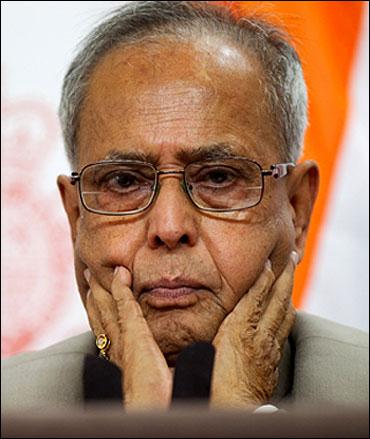
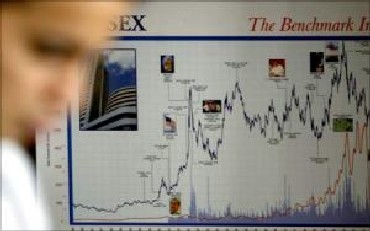
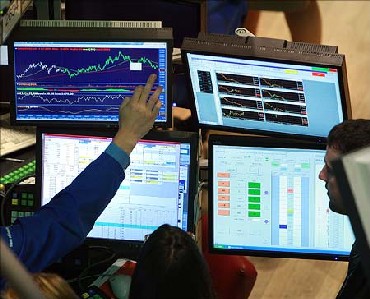
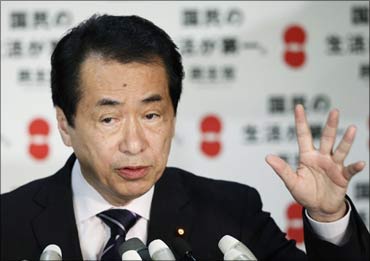



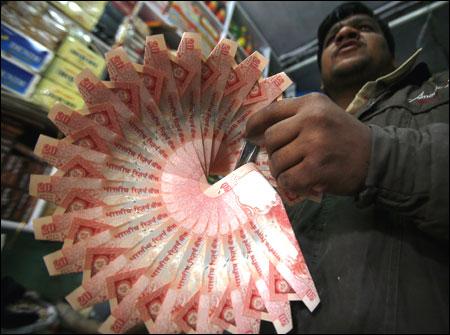

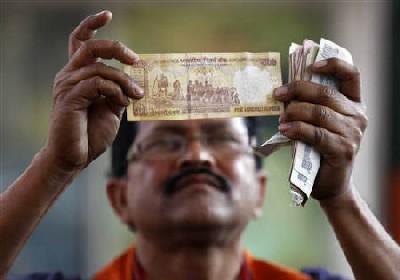

article